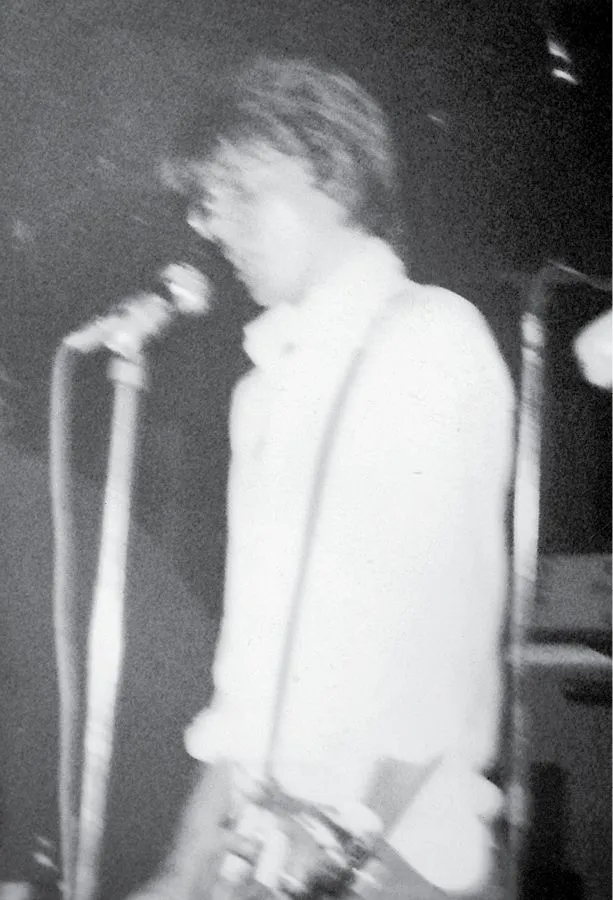Before the airline, the moneylending, the media empire, the cola, there were the record stores. They were the least corporate record stores imaginable.
Virgin was the most Bohemian place I had ever been in; a hippy enclave, the floors lined with aircraft seats and no limit on the time you could sit and listen to music on the improbably large headphones. It was radical. They had turntables behind the counter and you could ask them to put on whatever albums you liked. The manager would give me odd jobs and reward me with used display posters that I would recycle onto my bedroom wall. Once he gave me tickets to see Gong, of Planet Gong and “The Pot Head Pixies.”
When Virgin moved into its shiny, upscale megastore on New Street, I was the first customer to buy an album there—the Doctors of Madness debut—and was rewarded with a free copy of Mike Oldfield’s Ommadawn, which I never opened. Mike Oldfield? Who cares?
Everywhere in Birmingham there are monuments to heroes of the steam age, heroes of manufacturing and engineering. The Victorian aspect of the city, built at the peak of its wealth, was its DNA, supposedly so solid and unshakeable, but Birmingham never stops changing.
In 1975, it was the perfect modern city, and I never envied kids like Sex Pistols guitarist Steve Jones who grew up in London. How on earth you find your way through that pile of bricks at sixteen I just don’t know. At sixteen, I had my city mapped out. Everything about it I loved. I never stopped wanting to spend time there. I could make my daylight guerrilla raids, filling my head with the culture, then step onto the red bus back to Hollywood. I never left town empty-handed and, on my upstairs perch, would inspect the booty, an album or magazine, the city receding as the bus heaved south, carrying me toward the safety and comfort of my bedroom, my sanctuary.
Toward the end of my schooldays I could time that trip to perfection. I would be walking up to the front door of 34 Simon Road just as the school bus was dropping off my classmates. The suckers!

11 Neurotic Boy Outsider
If the city was the classroom, the New Musical Express was the textbook. The NME in the seventies had the most amazing, hip writers; Nick Kent, Charles Shaar Murray, Ian MacDonald. They looked like rock stars and they lived like rock stars, hanging out and taking drugs with them most nights of the week. Or so we were led to believe.
The world of music that the NME opened up was a revelation. From one week to the next it might be Miles Davis on the cover, or a report from Bowie’s New York concert, or a dispatch on Bob Marley from Jamaica.
For my little alienated self, not connecting at school, not connecting at church anymore, the NME allowed me to feel part of something. Part of a clique, with its own language, which I was learning to speak.
In a book review in the late nineties, the Guardian newspaper would write, “The NME in the ’70s was responsible for creating a generation of neurotic boy outsiders.”
I was one of those boys.
I was being drawn inexorably toward pop music and the culture around it. I had completely stopped going to school, but it never felt to me as if I was going off the rails. Music was nourishing me, and as long as I was getting my nourishment, what did it matter where it came from?
The music of the 1970s touched a lot of us teens, sitting in our suburban rooms, living with the claustrophobia of Dad’s wartime drama and Mom’s religious fanaticism.
• • •
Everywhere I went now, I was tapping my foot, drumming on the car dashboard, or playing keyboard on the kitchen table. But Mom and Dad were slow to get it, and it took ages until one of them said, “Maybe we need to put a musical instrument in front of him.”
The only instrument in my family ever, as far as I knew, was an out-of-tune piano at Nan’s house, which I used to love stomping on. Then, in 1975, my parents finally bought me a guitar, an all-black classic acoustic model that was a copy of something I had seen Bryan Ferry play, but I had no idea how to tune it, and it never occurred to anyone that a lesson or two might be helpful. A couple of strings got broken, and it was shoved to the back of the closet within a month.
I didn’t know I could be a “musician.” Musicians went to music school, became virtuosos, or plied their trade for years up and down the motorways in Transit vans. That’s how I imagined it, because the artists who were drawing my attention in the mid-seventies were “big” bands like Genesis and the Who, with extraordinary soloists, progressive rockers like Van der Graaf Generator or Queen. You didn’t just jump up onstage and begin to play like that. It took years of dedication.
But something happened in 1976 to change all that. The Sex Pistols released their first record.
1 comment